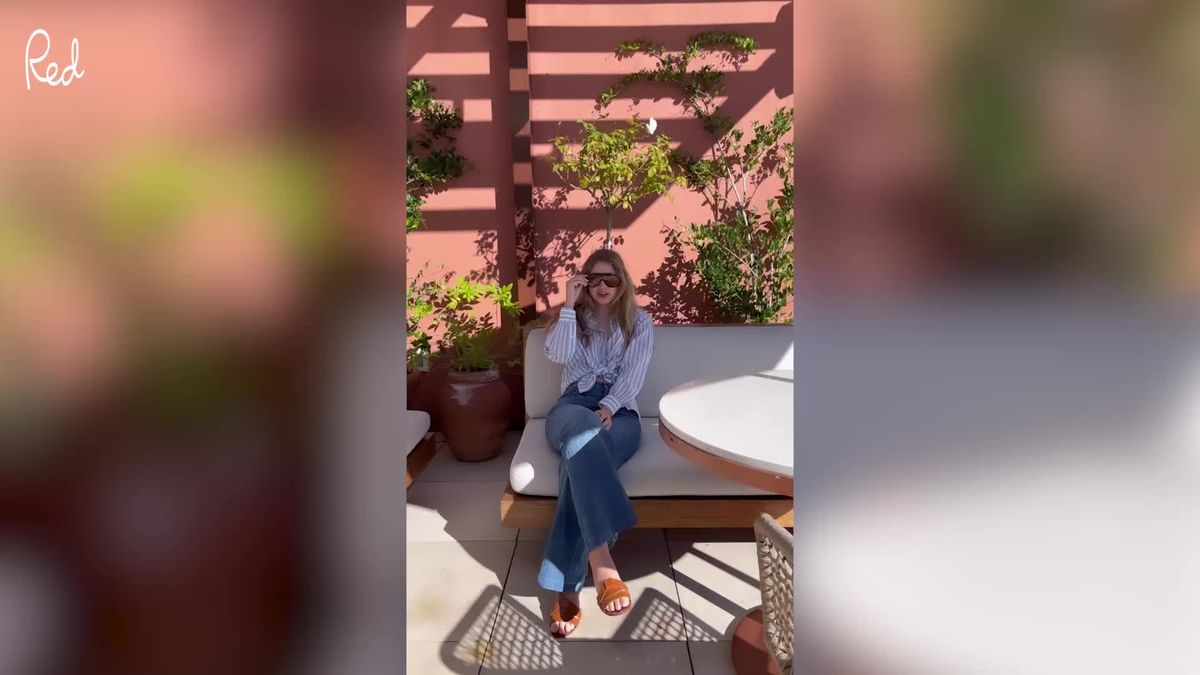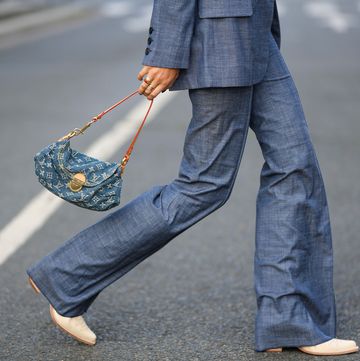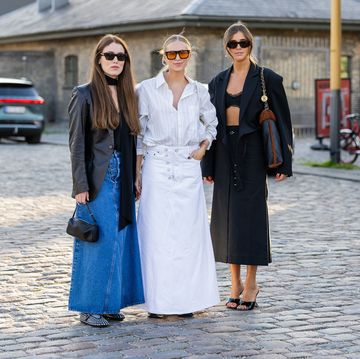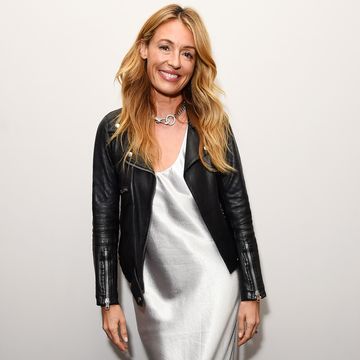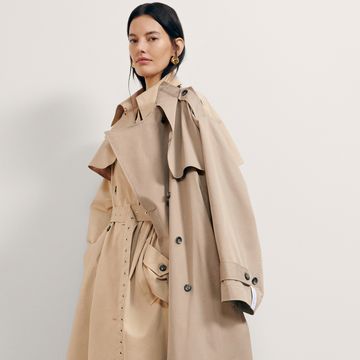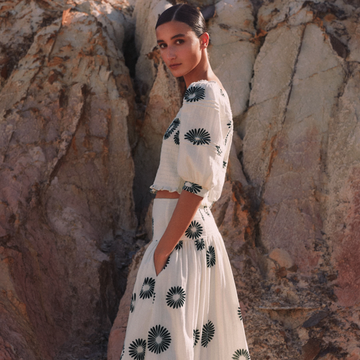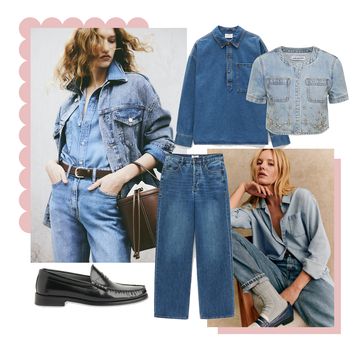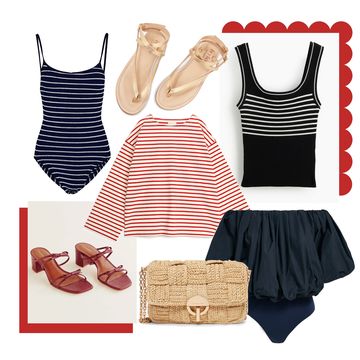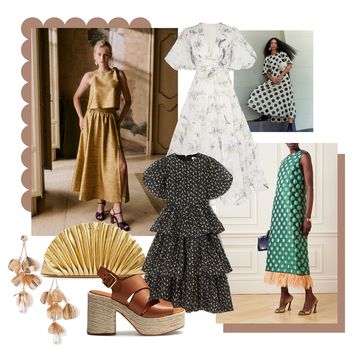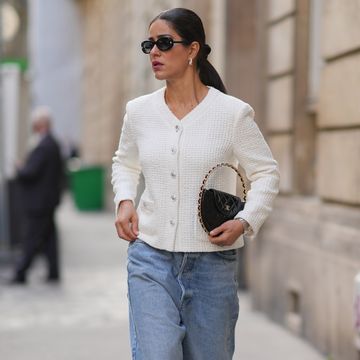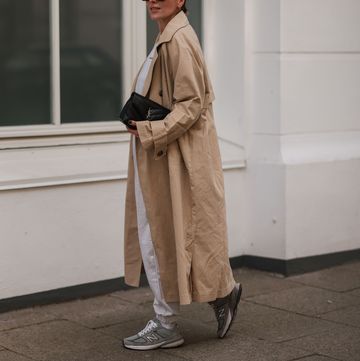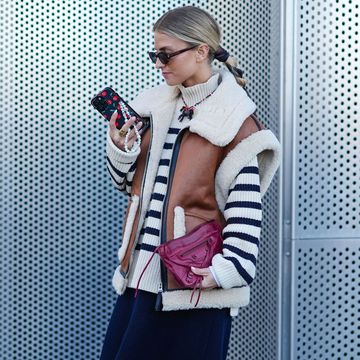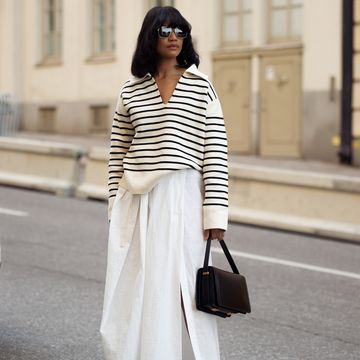For years now the term 'mumsy' has been used to describe a frumpy, mismatched style. The casual, loose style of clothing adopted by new mums who, while juggling their newborn and other daily admin, don't have time to 'properly' plan out on-trend outfits.
And Mumsnet founder Justine Roberts explains just how ingrained it is: 'Many women wrestle with their self-image after having children, feeling that somehow they have 'lost themselves' along the way; it's a theme we see repeatedly in discussions on Mumsnet. All the pressures experienced by mothers of young children (career worries, mind-boggling childcare costs, relationship glitches, tiredness, bodily changes, friendship shifts, societal judgement) can sometimes culminate in an epic changing-room meltdown over an ill-fitting pair of jeggings.'
But now fashion brand Boden is reclaiming the phrase 'mumsy' with their campaign 'Wear It Like A Mum': discussing ‘Mum Style’ and challenging the preconceived notions of ‘mum style’ to start a conversation about the experiences of women and their attitudes towards personal style after having kids.
It aims to align the word 'mum' with the idea of style, substance and showing that being a mum isn’t a term to be judged against when it comes to choice of clothes.
It’s about celebrating individual style and staying stylish in motherhood and it's in response to research done into our attitude towards mummy style, reflected by the media and even by many 'mummy' brands. Just take a look around the maternity section of many high street stores and you'll see how out-of-date and limited fashion for pregnant women and new mothers is.
Boden commissioned Dr. Michael Farrelly, a language and discourse professor at the University of Hull, to look at the relationship between the word ‘mum’ and style in the nine major British newspapers over the past 20 years.
He found that, of the nearly 2,476 articles dealing with mothers and style, the idea of looking like a mum, or appearing 'mumsy,' was explicitly something to be avoided. Words including 'stunning,' 'smart,' 'gorgeous' and 'sexiness' were cited as direct contrasts to a mum’s image across all types of national press - whilst words like 'unflattering,' 'dowdy' and 'frumpy' were used to elaborate the sense we are given for what a looking like a mum means.
The research revealed that a majority of all mums (66%) change how they dress after having children. When asked what words they felt best described how mums should dress, 72% responded ‘comfortable,’ with 67% also saying ‘practical.’ Just 15% associate the words ‘fashionable’ or ‘stylish’ with mums’ style and a shocking 1% said they would think of the word ‘sexy’ when asked how mums today should dress.
He explains: 'The results show that mums have a hard time. The press, which influences so much of public opinion, is signaling to women that they should avoid looking like a mum, or at least, a particular sort of mother: a ‘mumsy’ mum. It’s no surprise that there is a trend of mothers feeling an expectation placed on them to dress or present themselves a certain way - given the negativity directed towards their style choices in the British press.'
Boden then conducted a survey of over 1,000 UK mums to see how this negative media representation affected their attitudes toward fashion and found that, worryingly, that half (49%) of all young mothers (aged between 18 and 34) reported feeling less attractive after having children. Trying to pinpoint what exactly is influencing this negative attitude towards mums, their self-image and their style, Boden found that 38% of mums felt the media has a negative impact on the self-image of mothers.
So in an effort to combat this, this new fashion campaign includes influencers who are really nailing fashion and motherhood, including author and midwife Clemmie Hooper, stylist Zoe de Pass and pioneer of 'real parenting' social movement Anna Whitehouse.
Blogger Zoe explains she got involved with the campaign because of her love of fashion: 'Motherhood would never stop me wearing anything. Hot pants I have never worn, and I’m not going to start now. But leather trousers I have worn and
do still wear.’
‘My style has changed since becoming a mum – it’s more casual because I’m not dressing for work. It’s more colourful. I’ve got less to prove now.’
The clothing featured in the campaign is bold, bright and on-trend. It celebrates the female figure and mixes comfort with style that wouldn't go amiss at a fashion event or a nursery. Whether you're picking your child up from school or attending the gathering of the season, you're always a mum but that isn't a defining quality.
Because 'mum style' is anything you choose to wear when you have children and sometimes that's a pair of leggings and sometimes it's a matching velvet pant suit with a pair of sassy heels.
Hurrah for mums, and their wardrobes!


